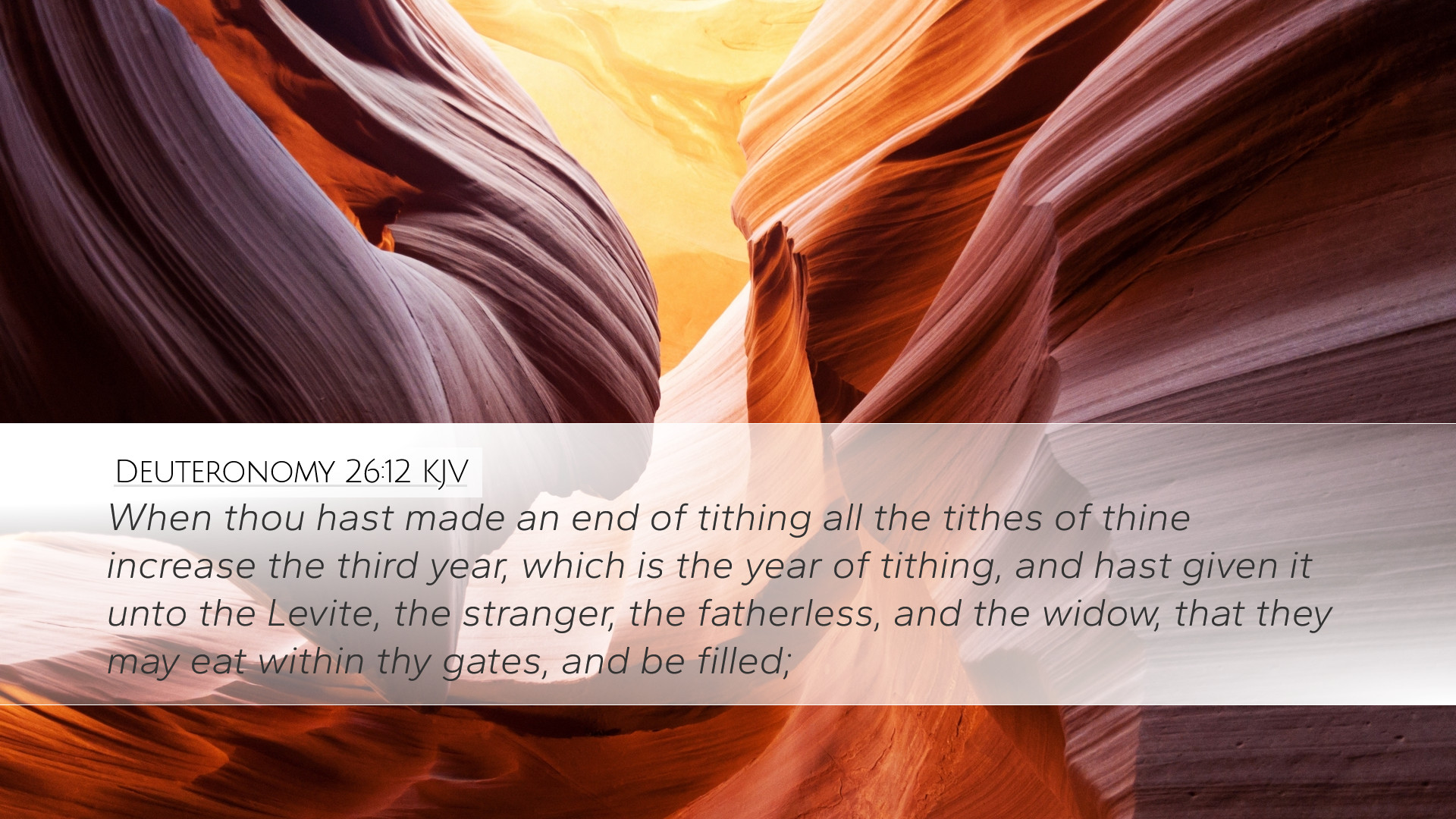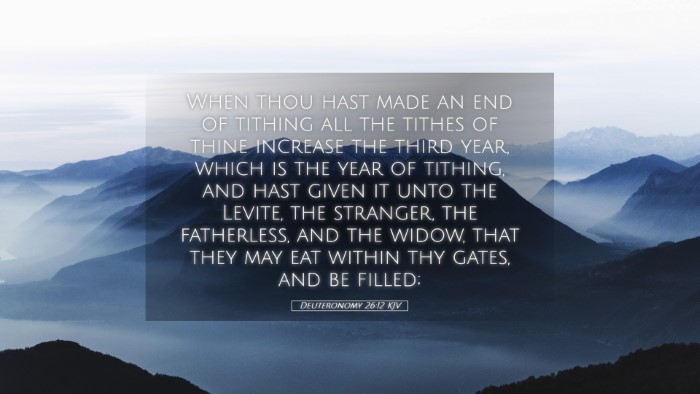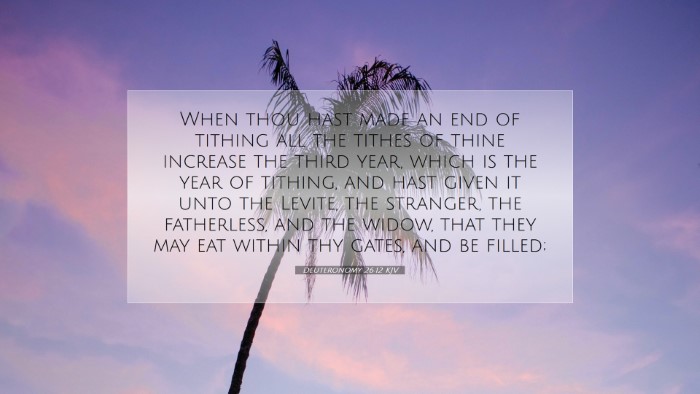Commentary on Deuteronomy 26:12
Verse Insight: Deuteronomy 26:12 (NIV) states, "When you have finished setting aside a tenth of all your produce in the third year, the year of the tithe, you shall give it to the Levite, the foreigner, the fatherless and the widow, so that they may eat in your towns and be satisfied."
Contextual Overview
Deuteronomy 26:12 is situated within a broader discourse on the proper observance of the Mosaic law regarding tithes. This chapter outlines not just the act of tithing, but its social implications, focusing on community welfare and divine acknowledgment.
Theological Significance of Tithing
The act of tithing represented more than just a financial obligation. It was a testimony of faithfulness to God and a recognition of His provision. Commentators like Matthew Henry emphasize that the tithe serves to acknowledge God's sovereignty over all, indicating that the tithe is not merely a duty but an act of worship. With the third year designated as the year of the tithe, it underscores the rhythm of giving, fostering integrity and gratitude in one's relationship with God.
Social Justice and Community Care
In this verse, the tithe is to be allocated not only for the Levitical priests but also for the marginalized groups within society, including the foreigner, the fatherless, and the widow. Albert Barnes notes that this deliberate allocation reflects God's concern for social justice and equity. The commandment enjoins God's people to remember the less fortunate, thus weaving a thread of communal responsibility throughout the fabric of Israelite society.
- The Levite: As those dedicated to service in the Temple, the Levites received their sustenance from the tithe, which permitted them to devote their lives to spiritual duties.
- The Foreigner: Representing the idea of inclusivity, providing for the foreigner extends the covenantal love of God beyond ethnic lines, affirming that God’s grace is accessible to all.
- The Fatherless and the Widow: These groups symbolized vulnerability, and their inclusion in the blessings of the tithe illustrates God's heart for the marginalized and His desire for His people to reflect that heart.
Spiritual Application
This verse provides profound spiritual applications for today’s believers. In a contemporary context, the call to tithe remains a principle of faith management and stewardship. Adam Clarke highlights that the practice serves not solely as a pragmatic measure for ensuring the priestly class’s upkeep but as a tangible expression of a believer's devotion to God and commitment to His kingdom work.
Trust in Divine Provision
For pastors and church leaders, this verse compels a reliance on divine provision, emphasizing that trust in God’s provision for communal needs is paramount. Leaders can encourage congregations to see tithing not as a legalistic measure but as a joyful response to the realization of God's abundant provision.
Responsibility towards the Marginalized
Incorporating Deuteronomy 26:12 into church teaching can motivate outreach programs, benevolence, and inclusivity efforts targeting local communities. The church, much like the Israelites, is called to be a fountain of hope for the vulnerable, allocating resources to enrich lives spiritually and materially.
Practical Steps for Application
- Integrate teachings on stewardship into sermons to cultivate a generous spirit among congregants.
- Establish programs that ensure the needs of those in the community, especially the marginalized, are met consistently.
- Encourage discussions on the importance of integrity in financial matters, emphasizing accountability in how tithes are used.
Conclusion
Deuteronomy 26:12 is a rich passage that encourages theological reflection, community care, and a robust understanding of stewardship. As pastors, students, theologians, and Bible scholars reflect on this text, the call to generosity, remember the marginalized, and acknowledge God’s provision becomes a profound and practical application in the life of the church today.


